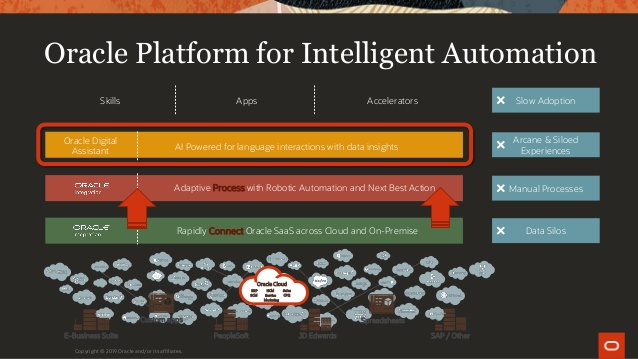Automation is a topic that is understood wildly differently for us all.
For some of us, it’s about robots taking over the world.
For others, it’s about Outlook setting a reoccurring meeting in your diary so you don’t have to.
And then there is the in-between. This third thing is what really that sums up automation. Contrary to some beliefs, robots aren’t going to take over the world, but they might change it in a way that we would have never thought was imaginable.

Already, we are seeing some projects that would have been laughed out of the room several years ago. For example, we are hearing that Oracle are using intelligent automation to go the extra mile with tasks; in other words, they are using automation to make decisions, rather than just ask machines to do the same repetitive tasks. Then, we have Bright Machines offering their microfactory-as-service model. Basically, they are injecting flexibility into manufacturing, so any business can quickly instill automation into their offering.
Of course, even though these great projects are happening in front of our very eyes, there will be all sorts of myths that do the rounds about automation. This is something that really isn’t done any favors by politicians either, who attempt to use automation as a weapon. Rather than showing how it can make our economy more productive, and create higher paying jobs, they focus on the jobs that it is replacing. This is the wrong way to look at automation and the reason why it’s almost got its bad name.
Why should you care about automation?
Aside from the above (and the fact it is a hugely interesting field) there are other reasons to care about automation and what it is doing for our world, and perhaps the industry that you work within.

We can’t get away from the fact that some jobs will no longer be require once automation fully streamlines itself in some workplaces. But, as we keep alluding to, this is going to create newer opportunities. These are the opportunities that you need to take advantage of. You know the in’s and out’s of current processes, but how can you make these faster? Instead of being a “doer”, become a decision-maker. The aim of your current job is to get ‘x’ performed in ‘x hours’. If you can devise the knowhow to reduce this time, automation is going to work completely in your favor.
Of course, you need skills to make the above happen. Unsurprisingly, programming skills are almost a necessity and it’s understood that demand for these skills is almost going to double in the upcoming years. Some skills also won’t be as desirable and to hone in on a couple of examples, data entry and equipment operation tend to fall into this category. It means that you need to start to cross the bridge and learn skills that are going to become more needed in future years.
Finally, let’s leave you with this article from WeForum. This article outlines in a nutshell what we have been saying today; automation can be something that we fear, but over time it can help us immensely in our jobs. It refers to robots as future co-workers and if you can start to understand this, you’ll reach the final “Satisfaction” phase which most people who work with automation get to.





